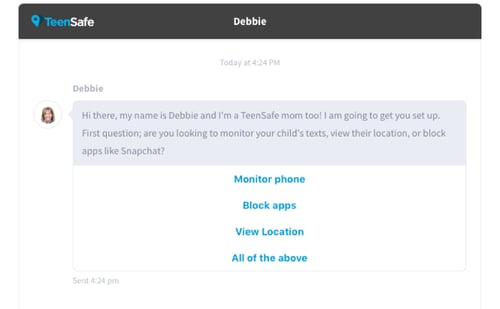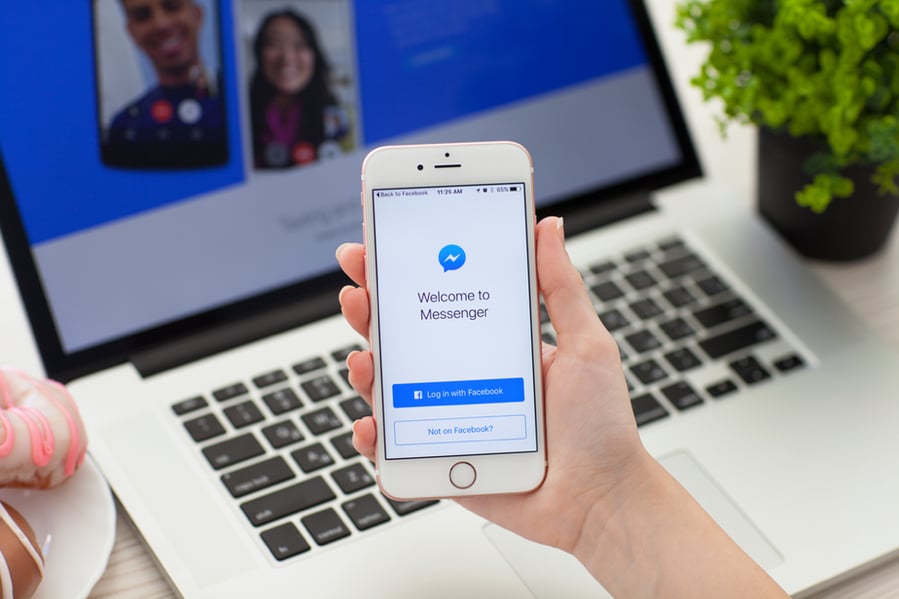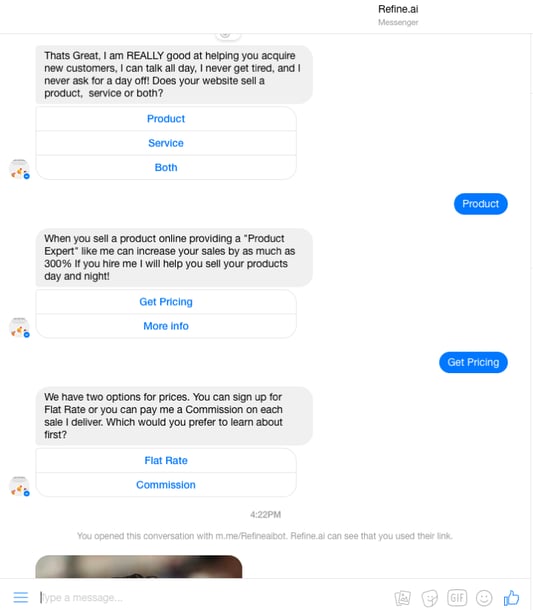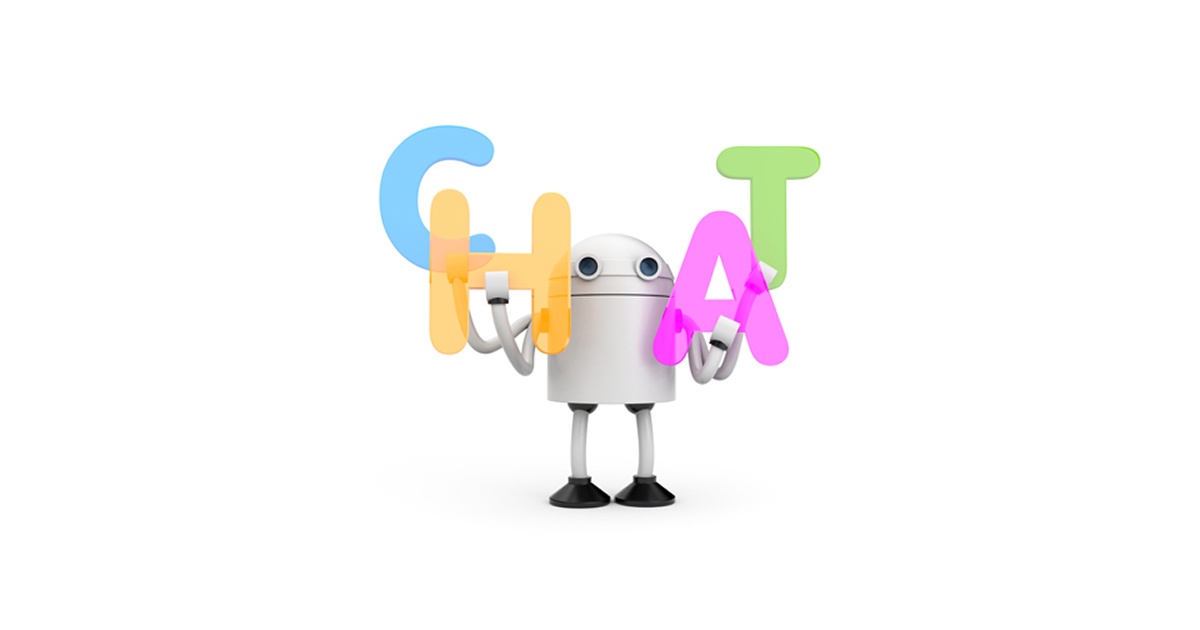Sendible insights What is AI, and What Does it Have to Do With Your Social Media Campaigns?
Artificial intelligence (AI) is all around us.
In day-to-day life, you probably use more AI based platforms than you think. Music streaming services, security systems, fraud protection, videogames, customer support, and even news sites all use artificial intelligence to enhance user experience.t
In fact, the AI industry is growing so rapidly, that by 2025 the now $1 billion market is expected to top $36 billion in value.
Business-to-consumer (B2C) brands are increasingly using this technology, especially in the food and retail industries.
According to the management consulting firm BRP, 45% of retailers expect to use AI within 3 years to enhance customer experience.
So, what exactly is AI?
Many definitions exist, but it’s easiest to think in layman's terms.
Artificial intelligence is a computer system that’s able to perform tasks which usually require human intelligence.
You can also see AI as a way to bridge the gap between human and computer interactions.
We’ve created binary code (also known as 'machine language) to communicate with computers, but this conversation has been largely one-sided.
Only with recent developments has artificial intelligence become sophisticated enough to understand human requests by entering text or performing voice searches and responding back to them.
Digital marketers have taken notice of the rise of AI technology and started incorporating the systems into their strategies. Notably, AI is used to help marketers make sense of the large amounts of data available in the Internet age.
Analyzing huge data sets with customer information makes for a daunting task, but sifting through this information manually would take years using humans, and that's where AI come is in.
Ever wonder how Netflix knows which new TV series or movie to recommend to you? It’s thanks to AI.
Before we get into how AI social media campaigns are revolutionizing the industry, we first need to look at the basis of artificial intelligence and its wide uses in marketing.
Artificial intelligence and how it relates to the world you know
Advertising platforms and social media have brought infinite amounts of consumer data to the forefront of the marketing world.
We’re no longer gathering data from multi-question surveys for our social media content strategy, but instead from tracking user behaviors online.
You’re probably already capitalizing on AI-based data for your social media marketing without even knowing it.
For instance, Facebook Insights gives marketers information about people who visit their Facebook business Pages including their demographics and location.
If you invest into Facebook Ads, you can segment it to a very specific audience by selecting their education level, income level, interests and behaviors.
For example, you could find that your buyer persona is under the age of 25 with an income of less than $40,000, who likes to order take out on the weekends and has liked your competitor's Facebook Page.
This information is laid out nicely by Facebook, but how did they collect it all so seamlessly?
The answer lies in natural language processing and semantic analysis.
Natural language processing
Or NLP for short is the term for artificial intelligence’s ability to learn from human language.
The ultimate goal is to create an AI that reads human language and interprets it akin to a human being.
In fact, the interpretation is expected to be better than that of a human, because a machine processes large chunks of information much more accurately and instantaneously.
Think of Apple’s predictive text input on the iPhone. Have you ever noticed how the input seemingly learns your speech patterns?
And what you were going to say in certain situations?
That’s NLP at work. Apple’s ‘bot‘ learns from your ‘human language‘ and suggests phrases that you’re likely to say.

Semantic search
This is the backbone to NLP. The goal of semantic search is to "improve search accuracy by understanding the searcher's intent and contextual meaning of terms".
In simpler words, it's how AI can interpret human sentences logically.
As a social media marketer, you probably know that what is being said about your client's brand can be more important than simply gaining visibility, e.g. positive vs negative feedback.
What AI does is look for contextual clues that will reveal the user's intent which may include phrases with dual meanings or the context in which the keywords are mentioned.
For example, the term 'Puma' could indicate the animal or the sporting goods brand. Furthermore, it could refer to shoes, shirts or soccer balls.
Semantic analysis lets the AI determine what the user meant, e.g. did they capitalize 'Puma'? Did the search involve other terms like 'buy', 'zoo', or 'predator'?
Semantic analysis lets search engines return highly accurate results in the matter of a few seconds.
Targeted advertising works in a similar way. AI mines tracked internet history to determine and show the most relevant ads based on the context. Users searching for the animal 'puma' get different ads than those searching for the 'Puma' sporting goods brand.
The better targeted an ad or search result, the more likely a consumer is to make a purchase or at least join the top of your sales funnel.
Targeted advertising with benefits-driven copy boosts click-through rates and has even been found to increase sales as much as 20 percent.
And we're barely scratching the surface here. There is dedicated software that can analyze the behavior of your prospects and customers based on their previous purchase habits, site visits, interactions with your website or the mobile app, and the list goes on.
Acquisition marketers use this information to set up drip-email sequences and sales teams use this information to call warm leads who match certain criteria, i.e. are most likely to become customers or buy again.

Entering the world of chatbots and social media marketing campaigns
Thus far we’ve only touched on AI’s back-end marketing application. Targeted social media marketing and relevant social media posts are great for improving sales and the consumer experience, but the impact of AI can be far greater.
The true genius of artificial intelligence from a marketing standpoint is its consumer-facing applications. You already know quite a bit about chatbots in the world of AI tools, even if you’re wondering what exactly we’re talking about.
Amazon’s Echo, Google’s Assistant and Apple’s Siri all represent the evolution of AI from back-end data mining to forward facing customer interaction.
The ability of chatbots to actually achieve this level of interaction is unrivaled. We’ve yet to really see just how much bots will impact social media marketing.
What we are seeing now is the early stages of the chatbot revolution. Messaging platforms like Facebook Messenger are now platforms for customer-facing AI.

Facebook Messenger
Facebook Messenger could become the ultimate messaging platform in the near future.
With over 1.2 billion active users, it dwarfs just about everything besides Apple’s iMessage and WhatsApp (also owned by Facebook).
Plus, it’s backed by the biggest online social media network; known AI advocates with no qualms about allowing third-party integration.
So what do chatbots have to do with Facebook Messenger?
Well, everything. Messenger provides the perfect 'home' where these bots can 'live' and interact with consumers.
Bots can offer seemingly natural interaction with customers that drives sales, let's have a look at a few examples for clarity.
Ordering flowers while chatting with 1-800-Flowers
Flower company, 1-800-Flowers was one of the first brands to utilize chatbots on Facebook Messenger.
How does it work for 1-800-Flowers?
Their bot revolves around simplicity by asking multiple-choice questions - customers request flowers, then provide basic details, and the AI recommends different bouquets to send.
The entire order takes place within the app, from inquiry to payment.
There may be some kinks when customers try to change address details while speaking to the chatbot, of course. However, by removing complex barriers and time-consuming order pages, new customers are more likely to make snap decision purchases. To support this, 1-800-Flowers reports that over 70% of all chatbot orders come from new customers.
Finding perfect travel destinations with Kayak
The travel coordinator, Kayak threw its hat into the chatbot arena with an app that takes consumers from travel musing and 'wanderlusting' right to the baggage claim.
How does it work for Kayak?
Consumers ask travel specific questions like “Where should I go on vacation that’s cheap” or “Which hotels are the best in Cancun” and receive instant recommendations.
The real benefit lies in the fact that innocent travel questions can easily turn into spontaneous travel plans. Kayak’s chatbot gives users an easy avenue to book flights, hotels, and activities.
Serving fast food fast with Burger King
Surprisingly enough, even fast food giant Burger King is jumping on the chatbot bandwagon.
How does it work for Burger King?
Their approach: make fast food even faster.
The Burger King bot lets customers place an order, from choice to payment, directly from Facebook Messenger.
Sparking up a conversation leads to a casual chat about what you’d like to eat, how much it will cost, and where to pick up your food.
Burger King is capitalizing on AI to streamline it’s already impressively efficient drive-thru lines.

Understanding How Chatbots Give You the Ability to Connect With Customers
Put simply, chatbots give your customers the ability to interact with your brand on a meaningful level at all times.
If the mood strikes them, your potential customers can interact with your chatbot and even make a purchase without involving a member of your staff.
It’s a marketing opportunity that hasn’t been seen before.
Imagine this scenario.
Mid-conversation with a friend, someone decides that they want to buy a new pair of shoes. All they have to do is message a shoe-centric chatbot and make their purchase, and it will even help then choose the right style.
In fact, a 3D printer company, 3Dprintler saw over a hundred orders come in and their conversion rate increased by 56% percent when compared to their website conversion rate thanks to their Messenger chatbot.
And that’s the power of chatbots. Conversions without the consumer ever leaving their private conversations.
Leads and sales acquired without the consumer ever even leaving the Facebook Messenger app.
New customers can instantly get information about a business without sifting through a Google search or waiting on hold with customer support.
Instead, they can resolve support questions, learn more about the brand and get a free consultation - all without leaving Facebook.

The bots are refining these processes so much, that the work done by in-house customer support and sales teams could be done by them.
However, this will not happen as swiftly in the foreseeable future. Bots can’t handle multi-part complex questions the same way a real human can.
What bots can do, is pass the support or acquisition process off to the human with most data already gathered.
Still questioning whether you should consider using chatbots?
Between customer facing platforms and consumer support/acquisitions, integrating chatbots into your social media strategy allows your client's brand the ability to connect with customers 24/7.
It would also attract more users to interact with you client's Facebook page which in turn can support your social media campaigns and increase brand awareness.
You can even make a note and celebrate this as a new service and promote it as a feature.
With artificial intelligence making chatbots smarter by the day, there’s never been a better opportunity to supplement your social media campaign with unrivaled customer support and acquisition.
If you are still A/B testing how AI works for your business, consider using a tool like Sendible that offers up features like access to one-click reports.
These reports will help you keep track of your social media efforts and how they are improving after implementing the use of AI.
We hope this article cleared up your understanding of what is AI and you get to use this technology in the future.
Marcela De Vivo Bustillo
Marcela De Vivo is a search veteran who has been in the industry since 1999. Marcela draws on an deep expertise in both organic and paid search to help companies large and small increase their revenue from digital marketing. Her emphasis has been in creating integrated marketing strategies that include paid, organic, social, and PR to build authoritative domains that have strong visibility across a variety of channels
Text copied!


